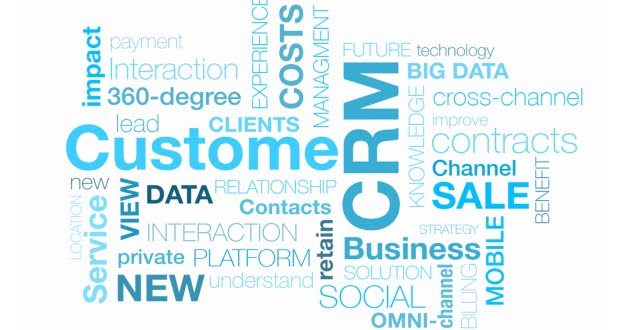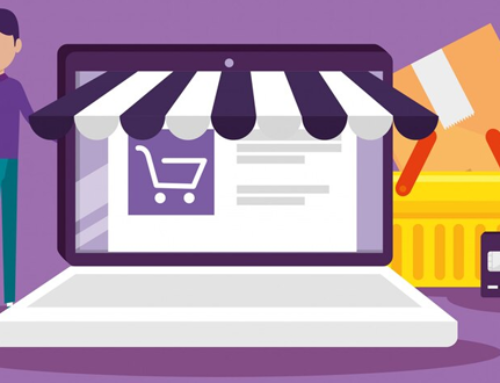Introduction
Building and nurturing strong customer relationships is paramount for any successful business. In the digital age, where customer expectations are constantly evolving, businesses need robust tools to manage interactions, personalize experiences, and foster long-term loyalty. This is where Customer Relationship Management (CRM) applications come into play.
A Brief Overview of Customer Relationship Management (CRM):
CRM refers to the strategies and technologies used to manage all aspects of a customer’s relationship with a business. This includes tracking interactions, storing customer information, analyzing data, and fostering personalized experiences throughout the customer lifecycle.
CRM applications serve as centralized platforms to manage all customer-related activities. They offer a variety of features and functionalities, enabling businesses to:
- Capture and organize customer data: From contact details and purchase history to preferences and interactions, CRM applications provide a centralized repository for all customer information.
- Automate repetitive tasks: Streamline workflows by automating tasks like email marketing, lead nurturing, and reporting, freeing up valuable time for more strategic activities.
- Gain insights into customer behavior: Analyze customer data to understand their preferences, buying habits, and pain points, allowing for data-driven decision-making.
- Personalize customer interactions: Leverage customer data to personalize marketing messages, offers, and support experiences, fostering stronger relationships and loyalty.
- Improve collaboration and communication: Facilitate collaboration between sales, marketing, and customer service teams, ensuring a consistent and unified customer experience.
The Evolution of CRM Software in Business:
The concept of CRM has been around for decades, but the way it’s implemented has undergone significant transformation. Here’s a brief overview of the evolution:
- Early CRM (1980s-1990s): Early CRM systems were primarily used for contact management and basic sales automation. These systems were often on-premise, requiring significant upfront investment and technical expertise to manage.
- Collaborative CRM (late 1990s-2000s): As internet usage grew, CRM systems shifted towards collaboration and information sharing. This era saw the rise of web-based CRM solutions, offering greater accessibility and fostering collaboration between different departments.
- Social CRM (2000s-present): The rise of social media brought a new dimension to CRM. Social CRM platforms integrate social media data and interactions, allowing businesses to engage with customers on their preferred platforms and gain valuable insights into their online behavior.
- Cloud-based CRM (2010s-present): The emergence of cloud computing revolutionized CRM. Cloud-based CRM applications offer greater scalability, affordability, and accessibility, making them a viable option for businesses of all sizes.
- Mobile CRM (2010s-present): The increasing usage of mobile devices led to the development of mobile CRM applications. These applications allow users to access and manage customer data on the go, further enhancing workforce mobility and productivity.
Significance of Implementing CRM Applications for Businesses:
In today’s competitive business landscape, implementing a CRM application offers valuable benefits for businesses of all sizes. Here’s a closer look at the significance of CRM:
- Improved customer relationships: CRM applications enable businesses to build stronger relationships with customers by providing a centralized platform for managing interactions, personalizing experiences, and addressing their needs effectively.
- Enhanced sales and marketing efforts: CRM helps businesses streamline and optimize sales and marketing processes. It allows them to identify and nurture leads, track opportunities, and measure campaign effectiveness, leading to increased sales and improved marketing ROI.
- Increased efficiency and productivity: By automating repetitive tasks and improving data accessibility, CRM applications free up valuable time and resources for employees to focus on more strategic activities.
- Data-driven decision-making: CRM provides valuable data and insights into customer behavior, allowing businesses to make data-driven decisions regarding marketing campaigns, product development, and customer service strategies.
- Improved collaboration and communication: CRM facilitates collaboration between different departments, ensuring everyone has access to the latest customer information and can contribute effectively to delivering a seamless customer experience.
By implementing a CRM application, businesses can gain a significant competitive advantage, fostering customer loyalty, optimizing internal processes, and achieving sustainable growth.

Key Features and Functionality of CRM Applications
CRM (Customer Relationship Management) applications have become essential for businesses of all sizes, streamlining interactions with customers and fostering stronger relationships. This section dives into the core functionalities of CRM applications, exploring their features and the benefits they offer.
Understanding CRM Modules: Sales, Marketing, and Customer Service
Modern CRM applications are not monolithic; they consist of interconnected modules, each catering to specific aspects of the customer lifecycle. Here’s a breakdown of these key modules:
- Sales Module:
- Lead management: Capture, qualify, and nurture leads through various channels.
- Opportunity management: Track the progress of potential deals, identify bottlenecks, and predict closing probabilities.
- Contact management: Store and manage customer information, including contact details, preferences, and communication history.
- Quote and proposal generation: Create and personalize quotes and proposals efficiently.
- Sales forecasting and reporting: Gain insights into sales pipeline health, forecast future revenue, and identify areas for improvement.
- Marketing Module:
- Campaign management: Plan, launch, and track marketing campaigns across various channels like email, social media, and web marketing.
- Segmentation and targeting: Segment your audience based on demographics, interests, and behavior for personalized marketing campaigns.
- Lead generation and scoring: Generate leads through targeted campaigns and score them based on their likelihood of becoming customers.
- Marketing automation: Automate repetitive tasks like email marketing, lead nurturing, and social media scheduling.
- Marketing analytics and reporting: Analyze the effectiveness of marketing campaigns, track key metrics like ROI, and identify areas for optimization.
- Customer Service Module:
- Ticketing and case management: Create, manage, and track customer support tickets efficiently.
- Multi-channel support: Offer customer support through various channels like phone, email, live chat, and social media.
- Knowledge base and self-service portal: Empower customers to find answers to common questions and troubleshoot issues independently.
- Customer service analytics and reporting: Track and analyze customer service metrics like response times, resolution rates, and customer satisfaction.
- Customer feedback management: Collect and analyze customer feedback to improve products, services, and the overall customer experience.
Real-time Data Management and Analytics:
CRM applications act as a central hub for all customer data, providing real-time insights and enabling data-driven decision-making. Here are some key features:
- Data capture and cleansing: Capture customer data from various sources, cleanse and organize it for improved accuracy and reliability.
- 360-degree view of the customer: Gain a holistic view of each customer by unifying data from sales, marketing, and customer service interactions.
- Real-time reporting and dashboards: Access real-time dashboards and reports that provide insights into key performance indicators (KPIs) across different departments.
- Predictive analytics: Leverage predictive analytics to anticipate customer needs and behavior, allowing for proactive engagement and personalized experiences.
Integration Capabilities with Other Business Tools:
CRM applications don’t exist in isolation; they integrate with other essential business tools to streamline workflow and improve overall efficiency. Common integrations include:
- Email marketing platforms: Send personalized email campaigns directly from the CRM platform.
- Accounting and finance applications: Manage invoices, payments, and financial data within the CRM system.
- Project management tools: Collaborate on projects and track tasks related to specific customers.
- E-commerce platforms: Integrate customer data and sales information for a seamless online shopping experience.
Mobile Accessibility for On-the-Go Management:
In today’s fast-paced world, access to information and customer interaction needs to be available anywhere, anytime. CRM applications offer mobile accessibility, allowing users to:
- Manage leads, contacts, and opportunities on the go.
- Access and update customer information from any device.
- Collaborate with colleagues and respond to customer inquiries in real-time.
- Track key metrics and performance indicators even while traveling.
By offering real-time data, insightful analytics, and seamless integration with other tools, CRM applications empower businesses to improve customer relationships, streamline sales and marketing efforts, and achieve higher levels of operational efficiency.
Choosing the Right CRM Solution
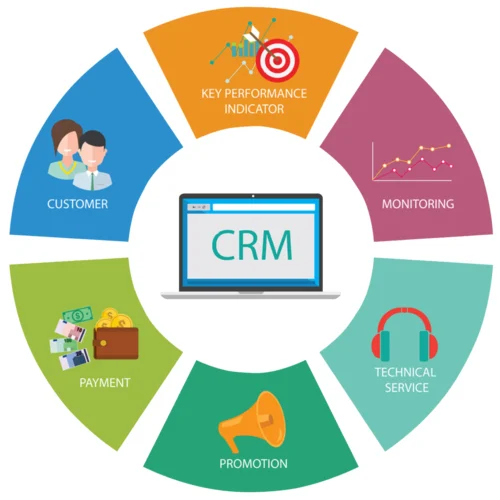
Selecting the right CRM application is crucial for maximizing its benefits and aligning it with your business goals. This section helps you navigate the selection process, considering key factors to make an informed decision.
Evaluating Business Needs and Objectives:
Before diving into specific platforms, it’s essential to have a clear understanding of your unique business needs and objectives. Here are some key questions to consider:
- What size is your business? Different CRM solutions cater to the needs of small, medium, and large enterprises, considering factors like user count, data storage requirements, and budget constraints.
- What are your core business functions? Identify the departments (sales, marketing, customer service) that will primarily use the CRM and the functionalities they require.
- What are your specific challenges and pain points? Are you struggling with lead generation, customer retention, or data siloing? Defining your challenges will help you identify a CRM that addresses them effectively.
- What is your budget? CRM solutions come with varying pricing structures, ranging from subscription models to one-time license fees. Determine your budget allocation for a CRM solution.
- What level of customization is needed? Some businesses require extensive customization to align with their specific workflows, while others might prefer a more out-of-the-box solution.
Comparison of Popular CRM Platforms:
The CRM market offers a diverse range of solutions, each with its own strengths and weaknesses. Here’s a brief comparison of some of the most popular platforms:
- Salesforce: A leading enterprise-grade CRM platform offering comprehensive features and robust customization options. Ideal for larger businesses with complex needs but might be costly for smaller companies.
- HubSpot CRM: A robust and user-friendly platform particularly well-suited for smaller businesses and startups. Offers free and tiered paid plans with an emphasis on marketing automation and lead generation.
- Zoho CRM: An affordable and scalable CRM solution suitable for businesses of all sizes. Offers a wide range of features, including sales, marketing, and customer service functionalities, at a competitive price point.
- Freshworks CRM: Known for its user-friendly interface and strong mobile capabilities. Ideal for businesses seeking a simple and intuitive CRM solution for managing customer interactions across various channels.
- Microsoft Dynamics 365: Part of the Microsoft suite, integrates seamlessly with other Microsoft products and offers strong customization options. Ideal for businesses already invested in the Microsoft ecosystem.
It’s important to note that this is not an exhaustive list, and numerous other CRM solutions exist to cater to specific industry needs and business sizes. Thorough research and comparison based on your specific criteria are crucial to finding the best fit.
Scalability and Customization Options:
As your business grows and evolves, your CRM needs will inevitably change. It’s essential to consider the scalability and customization options offered by different platforms:
- Scalability: Choose a solution that can grow with your business, allowing you to add users, features, and storage capacity as needed. Cloud-based solutions typically offer greater scalability compared to on-premise software.
- Customization: Depending on your specific requirements, you might need a platform that allows for customization of workflows, reports, and user interfaces. However, extensive customization might require additional development resources or expertise.
User-Friendly Interface for Enhanced Adoption:
Even the most feature-rich CRM solution will be ineffective if your team struggles to use it. Opt for a platform with a user-friendly interface that is:
- Intuitive and easy to navigate: Minimize the learning curve for users by ensuring the interface is clear, logical, and consistent.
- Visually appealing and modern: A visually appealing interface can enhance user experience and encourage adoption.
- Mobile-friendly: Consider if your team needs mobile access to customer data and choose a platform with a responsive interface for smartphones and tablets.
Investing in user training and providing ongoing support can also significantly enhance
CRM adoption within your organization.
By carefully evaluating your business needs, comparing leading CRM platforms, and prioritizing scalability, customization, and user-friendliness, you can select a CRM solution that empowers your team, streamlines operations, and fosters long-term success.
Implementing CRM for Improved Customer Engagement
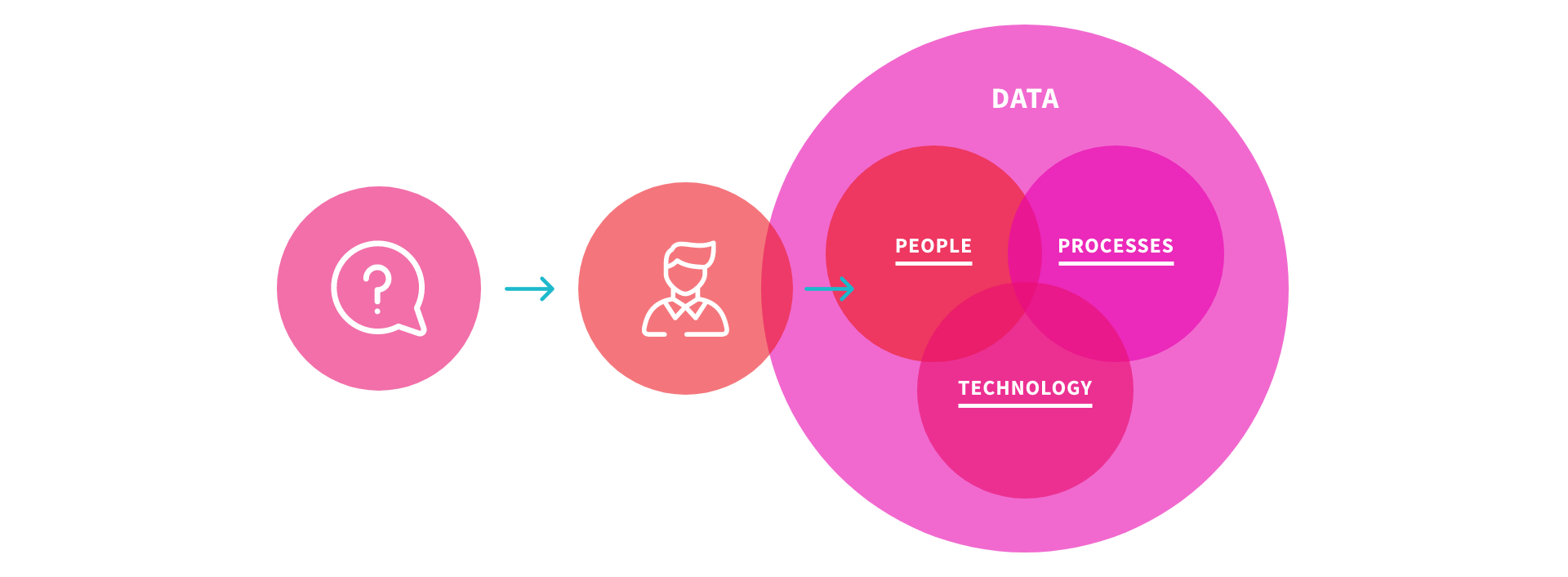
CRM applications offer a powerful toolset for businesses to cultivate and nurture stronger customer engagement. By leveraging its functionalities, businesses can create a more personalized, efficient, and relationship-focused customer experience.
Enhancing Customer Communication Strategies:
CRM allows for centralized management of all customer communication channels, including email, phone, and social media. This enables businesses to:
- Maintain a consistent and unified voice across all touchpoints.
- Personalize communication based on individual customer preferences and history.
- Respond to customer inquiries promptly and efficiently.
- Offer proactive communication, such as notifying customers about relevant updates or new offerings.
Utilizing CRM for Personalized Marketing Campaigns:
CRM provides valuable customer data that can be used to craft targeted and personalized marketing campaigns. This leads to:
- Increased campaign effectiveness and ROI.
- Improved customer engagement and brand loyalty.
- Reduced customer churn by understanding and addressing customer needs and preferences.
Streamlining Customer Service Processes:
CRM streamlines customer service processes by:
- Providing a centralized platform for managing customer support tickets and inquiries.
- Enabling collaboration between customer service representatives.
- Offering knowledge base and self-service portals for customer self-resolution.
- Tracking customer service metrics to identify areas for improvement.
Building Long-lasting Customer Relationships:
By enabling efficient communication, personalized interactions, and improved customer service experiences, CRM helps businesses build long-lasting customer relationships. This translates to:
- Increased customer satisfaction and loyalty.
- Enhanced brand reputation and positive word-of-mouth marketing.
- Increased customer lifetime value through repeat business and referrals.
In conclusion, implementing a CRM application and utilizing its functionalities effectively is not just about managing customer data; it’s about fostering genuine connections and building long-term relationships with your customer base.
CRM Security and Data Privacy

Customer data entrusted to CRM applications is highly valuable and requires robust security measures. Here’s an overview of this essential aspect:
Importance of Data Security in CRM Applications:
CRM applications house sensitive customer information, including names, contact details, purchase history, and potentially even financial data. Ensuring the security of this data is paramount to protect customer privacy and build trust. Data breaches can lead to:
- Financial losses and legal ramifications.
- Reputational damage and loss of customer trust.
- Operational disruptions and downtime.
Compliance with Data Protection Regulations:
Many regions have data protection regulations like GDPR (General Data Protection Regulation) and CCPA (California Consumer Privacy Act) that govern the collection, storage, and use of customer data. Businesses must comply with these regulations to avoid legal repercussions.
Role-based Access Controls for Secure Information Handling:
Implementing role-based access controls (RBAC) is a crucial security measure. RBAC restricts access to specific user groups based on their job function and need-to-know basis. This minimizes the risk of unauthorized access to sensitive information.
Additionally, businesses should prioritize data encryption, regular security audits, and employee training on data protection best practices to further safeguard customer information and maintain compliance with relevant regulations.
CRM Application Integration with AI and Automation
The integration of Artificial Intelligence (AI) and automation is transforming the capabilities of CRM applications. These advancements enable businesses to operate more efficiently, gain deeper customer insights, and personalize customer interactions, leading to a significant competitive advantage.
Leveraging AI for Predictive Analytics in CRM:
AI empowers CRM applications with predictive analytics capabilities. This allows businesses to:
- Identify potential customer churn and take proactive steps to retain them.
- Predict customer needs and preferences, enabling personalized marketing campaigns and product recommendations.
- Forecast sales opportunities and optimize resource allocation.
Implementing Automation for Routine Tasks:
CRM applications can automate a wide range of repetitive tasks, such as:
- Data entry and lead scoring.
- Email marketing campaigns and personalized responses.
- Scheduling appointments and follow-up communication.
Automation frees up valuable time for human resources to focus on strategic activities, customer relationship building, and addressing complex inquiries.
Enhancing Customer Insights through AI-driven Data Analysis:
AI algorithms can analyze vast amounts of customer data from various sources, including CRM systems, social media interactions, and website behavior. This provides businesses with deeper customer insights, allowing them to:
- Understand customer sentiment and identify areas for improvement.
- Personalize customer journeys across different touchpoints.
- Develop targeted marketing campaigns based on individual customer preferences.
By integrating AI and automation into CRM applications, businesses can gain a significant edge in today’s competitive landscape. These advancements empower them to make data-driven decisions, personalize customer experiences, and ultimately achieve sustainable growth.
Case Studies: Successful Implementation Stories
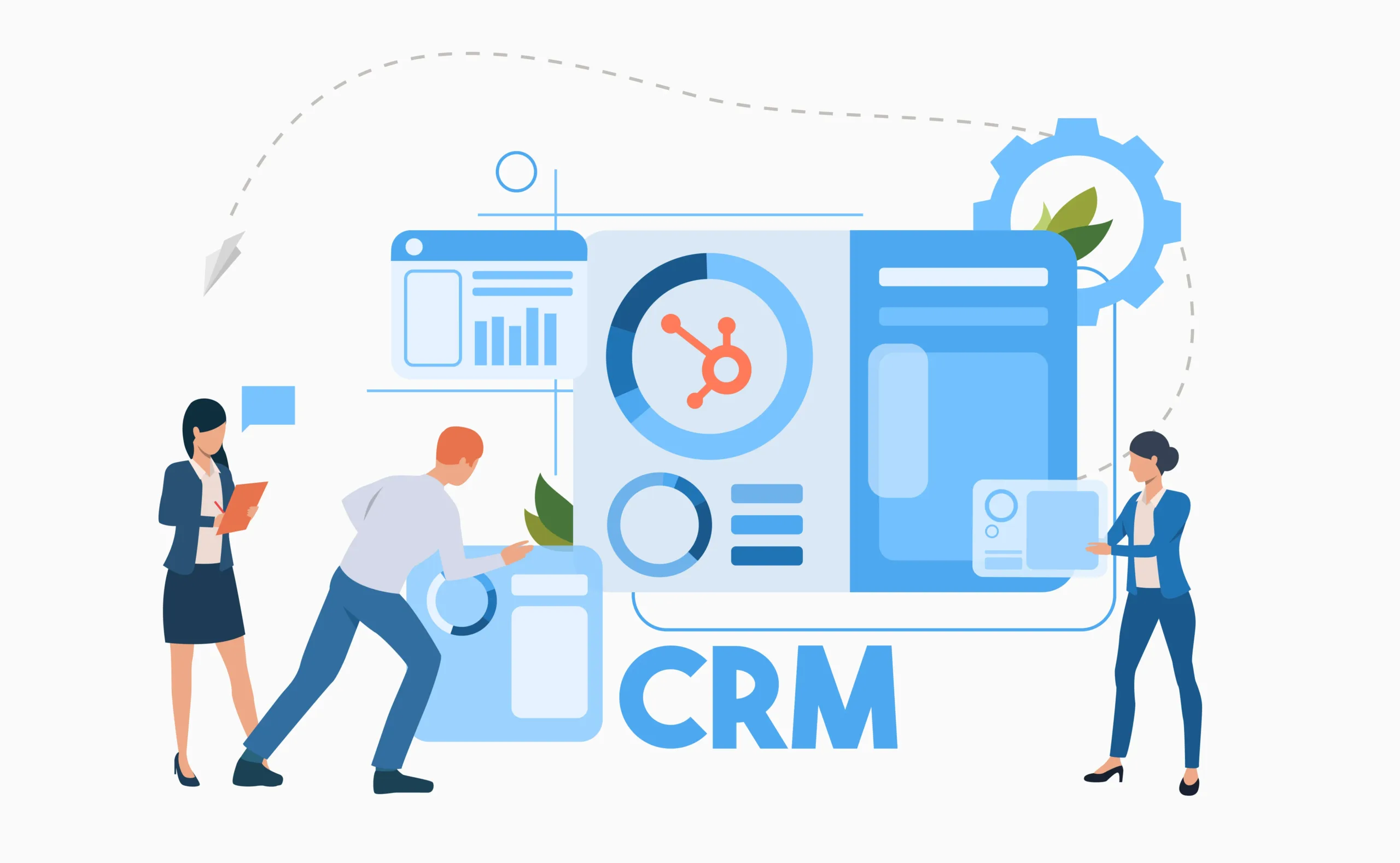
CRM applications are not just theoretical tools; they deliver real-world results. Here, we explore two inspiring case studies showcasing how businesses thrived after implementing CRM solutions:
Case Study 1: E-commerce Startup Boosts Sales and Customer Retention:
- Challenge: A rapidly growing e-commerce startup struggled to manage customer data, personalize marketing campaigns, and track customer engagement effectively.
- Solution: Implemented a cloud-based CRM solution that offered features like centralized customer data management, marketing automation, and analytics.
- Results: After implementing the CRM, the startup witnessed:
- 30% increase in sales through targeted marketing campaigns.
- 20% reduction in customer churn by proactively addressing customer needs and preferences.
- Improved customer satisfaction due to personalized communication and efficient customer service.
- Lessons Learned: Investing in the right CRM solution allowed the startup to scale their operations efficiently, personalize customer interactions, and cultivate stronger customer relationships, leading to significant business growth.
Case Study 2: Manufacturing Company Streamlines Operations and Enhances Customer Service:
- Challenge: A large manufacturing company faced challenges with managing customer inquiries, streamlining internal processes, and gaining insights into customer needs.
- Solution: Implemented a CRM solution with features like case management, service ticketing, and reporting functionalities.
- Results: The manufacturing company saw:
- 25% reduction in average resolution time for customer inquiries.
- Improved collaboration between sales and service teams leading to a more cohesive customer experience.
- Data-driven insights into customer issues and preferences, allowing for proactive problem-solving and product improvement.
- Lessons Learned: The CRM implementation facilitated streamlined communication, improved customer service efficiency, and enabled the company to make data-driven decisions that ultimately enhanced customer satisfaction and loyalty.
These case studies illustrate the tangible benefits of implementing CRM applications. By effectively utilizing the features and functionalities offered by CRM solutions, businesses of all sizes can optimize operations, enhance customer interactions, and achieve sustainable success.
Future Trends in CRM Applications
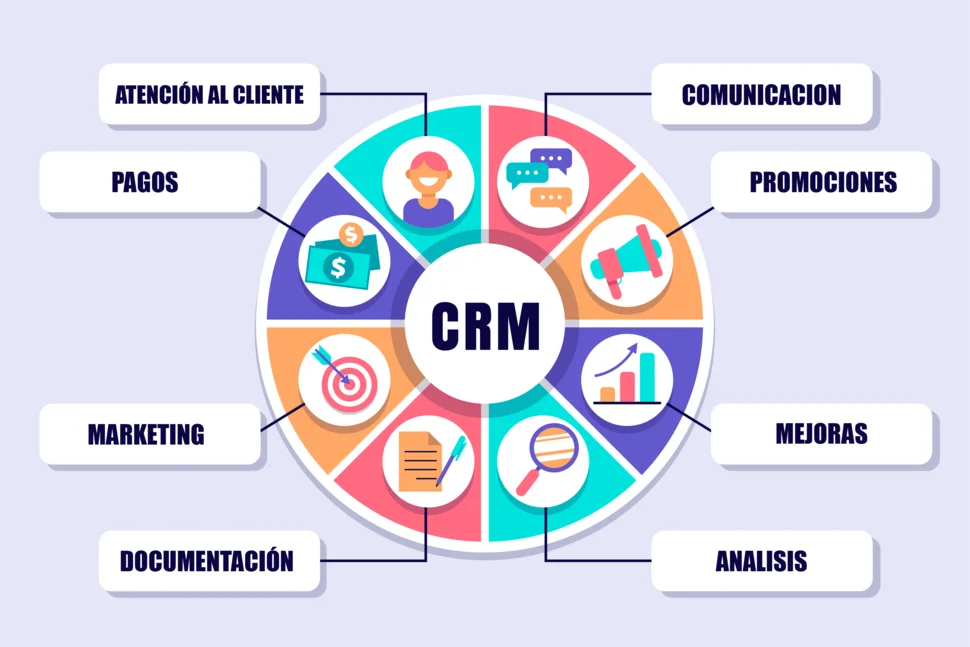
The realm of CRM applications is constantly evolving, embracing new technologies and advancements to further empower businesses in their customer relationship management endeavors. Here, we explore some of the most prominent trends shaping the future of CRM:
- AI Advancements in CRM:
- Enhanced personalization: AI will enable hyper-personalization of customer experiences, tailoring interactions and recommendations to individual customer needs and preferences in real-time.
- Advanced chatbots and virtual assistants: AI-powered chatbots and virtual assistants will become even more sophisticated, offering natural language processing capabilities for seamless customer self-service and personalized support.
- Predictive lead scoring and customer churn prediction: AI algorithms will become adept at predicting customer behavior with greater accuracy, allowing businesses to prioritize high-value leads and proactively address potential churn.
- Integration with Emerging Technologies:
- Internet of Things (IoT) integration: CRM systems will integrate with IoT devices to collect real-time data on customer behavior and product usage, enabling businesses to personalize product recommendations and provide proactive support.
- Blockchain integration: Blockchain technology has the potential to revolutionize data security and privacy within CRM applications, enhancing trust and transparency in customer interactions.
- The Shift towards Cloud-based CRM Solutions:
- Increased adoption of cloud-based solutions: Cloud-based CRM solutions will continue to gain traction due to their scalability, affordability, and accessibility from anywhere, anytime.
- Focus on mobile CRM: With the increasing use of mobile devices, mobile CRM functionalities will become even more robust and user-friendly to empower on-the-go customer interaction management.
- Emergence of industry-specific CRM solutions: We’ll see a rise in industry-specific CRM solutions tailored to the unique needs and challenges of different sectors, offering specialized features and functionalities.
These trends highlight the continuous advancements in CRM technology. By embracing these innovations and strategically implementing CRM solutions, businesses can gain a significant competitive edge in the ever-evolving customer-centric landscape.
In conclusion, CRM applications have become an essential component for businesses of all sizes, streamlining operations, fostering stronger customer relationships, and ultimately driving growth. As technology continues to evolve, we can expect CRM solutions to become even more intelligent, personalized, and integrated, empowering businesses to better understand and serve their customers in the years to come.
Conclusion
In the ever-evolving landscape of modern business, Customer Relationship Management (CRM) applications stand as catalysts for transformative change. As we conclude our journey through the realm of CRM, let us reflect on the profound impact these applications have on shaping business dynamics and fostering sustainable growth.
Recapitulation of CRM Benefits: From streamlining sales processes to orchestrating targeted marketing campaigns and delivering exceptional customer service, CRM applications offer a plethora of benefits. They centralized customer data, provide actionable insights, and empower businesses to forge stronger relationships with their clientele.
Encouraging Businesses to Embrace CRM for Sustainable Growth: As we navigate an increasingly competitive marketplace, the adoption of CRM applications emerges as a strategic imperative. By embracing CRM, businesses can unlock new avenues for growth, enhance operational efficiency, and stay ahead of the curve in delivering unparalleled customer experiences.
A Glimpse into the Future of CRM Innovation: Looking ahead, the future of CRM innovation holds boundless possibilities. From advancements in artificial intelligence and predictive analytics to seamless integration with emerging technologies, CRM applications will continue to evolve, driving innovation and shaping the next chapter of business success.
In conclusion, let us embrace the transformative power of CRM applications and harness their capabilities to propel our businesses forward into a future of sustained growth, profitability, and customer-centric excellence.


